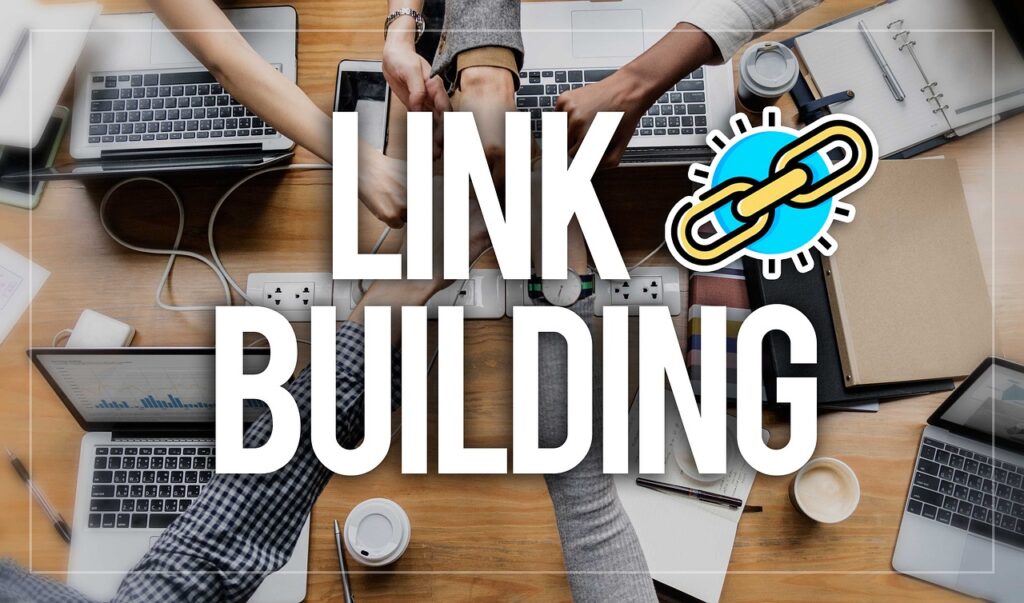
Link building is an essential part of any successful SEO strategy. It plays a pivotal role in enhancing website authority, increasing visibility, and improving search engine rankings. If you want to climb to the top of search engine results pages (SERPs), you need to understand how to leverage the power of link building. In this comprehensive guide, we will walk you through everything you need to know about link building, from its definition to advanced strategies that will skyrocket your website’s authority and search rankings.
What is Link Building?
Link building refers to the process of acquiring hyperlinks from other websites to your own. These links, also known as backlinks, act as a vote of confidence from one site to another. Search engines, particularly Google, use these links as one of the key factors in determining how well a website should rank on the results page. In essence, the more high-quality links pointing to your website, the more authoritative it appears in the eyes of search engines.
Why is Link Building Important?
Backlinks are a key ranking factor in SEO. The more high-quality backlinks your site has, the more authoritative it appears to search engines. Here’s why backlinks matter:
- Improves Search Engine Rankings: Search engines like Google view backlinks as a vote of confidence in your content. If multiple authoritative websites link to your page, search engines perceive it as a signal that your content is valuable and relevant. As a result, your website ranks higher in SERPs.
- Boosts Website Authority: Links from authoritative websites transfer trust and credibility to your own site. As a result, you increase your site’s domain authority, which directly affects how well your pages rank in search engines.
- Increases Referral Traffic: High-quality backlinks can drive targeted traffic to your site. When users click on links placed on other websites, they are directed to your page, providing an opportunity for conversion.
- Enhances Brand Visibility and Recognition: Consistent link building helps increase your online visibility. As more people discover your content through external links, your brand gains recognition, leading to better reputation and more opportunities.
- Builds Relationships and Networking: Link building can also help foster relationships within your industry. Reaching out to others for backlinks can lead to collaborative opportunities, guest posts, and partnerships.
Types of Links in Link Building

Not all backlinks are created equal. In fact, the quality of the backlink is far more important than the quantity. Below are the different types of links you should focus on when building links for your website:
1. Natural Links:
Natural links occur when other websites link to your content because they find it useful, informative, or relevant to their own audience. These links are the best type of backlinks, as they are completely organic and not solicited.
2. Manually Built Links:
Manually built links involve an active effort to acquire backlinks through strategies such as guest blogging, influencer outreach, and directory submissions. These require more effort but are still highly valuable when done correctly.
3. Self-Created Links:
Self-created links are those that are added by the website owner to forums, blog comments, or directories. However, these links are often seen as spammy and may be penalized by search engines if used improperly.
4. Editorial Links:
Editorial links are awarded when your content is cited or referenced by authoritative websites, blogs, or news outlets. These links are highly valuable because they indicate that your content is of high quality and credible.
Link Building Strategies to Skyrocket Website Authority
Now that we’ve discussed the importance of link building and the types of links, let’s explore some of the most effective strategies to skyrocket your website authority and rankings.
1. Content Creation and Promotion
The first and most fundamental step in any link building strategy is to create high-quality, valuable content that other websites would want to link to. If your content provides unique insights, solves problems, or answers questions, other sites will naturally want to refer their visitors to your content.
Example: Let’s say you run a website about digital marketing. You could create an in-depth guide on “The Ultimate SEO Checklist for 2025”. When other bloggers or marketers write about SEO, they might reference your guide, earning you valuable backlinks.
Once you’ve created great content, promote it through various channels like social media, email newsletters, and outreach to influencers or bloggers in your niche.
2. Guest Blogging
Guest blogging is one of the most effective and popular ways to build backlinks. It involves writing blog posts for other websites in your industry or niche in exchange for a backlink to your own website.
Example: If you run an online store selling eco-friendly products, you could write a guest blog for a popular sustainability-focused website, providing valuable tips on eco-friendly living. In your author bio or within the content, include a link to your website.
The key to successful guest blogging is to choose reputable websites with strong domain authority and a relevant audience.
3. Broken Link Building
Broken link building is a technique that involves finding broken links on authoritative websites and offering your content as a replacement. This strategy requires you to first identify pages on relevant websites that link to non-existent pages (404 errors), then contact the website owner or administrator with a suggestion for a similar, working link from your site.
Steps for Broken Link Building:
- Use tools like Ahrefs, Screaming Frog, or Check My Links to find broken links.
- Contact the website owner and suggest your content as a replacement.
- Provide a brief and polite explanation of how your content could be valuable for their readers.
4. Skyscraper Technique
The Skyscraper Technique, popularized by Brian Dean from Backlinko, involves finding high-ranking content in your niche, creating something better, and then reaching out to people who have linked to the original content to link to your improved version.
Example: If you find an article titled “The Best Tips for Social Media Marketing,” which ranks highly but lacks in-depth details on a specific topic, you can create a more comprehensive guide. Then, reach out to those who have linked to the original post and inform them about your enhanced version.
5. Influencer Outreach and Relationship Building
Building relationships with influencers and thought leaders in your industry is another powerful strategy for gaining high-quality backlinks. By offering value through collaborative content or interviews, influencers are more likely to link to your site.
Example: If you sell fitness products, you can collaborate with fitness influencers to create content like workout tips or product reviews. In return, they will link to your website from their blog or social media channels.
6. Resource Pages and Directories
Many websites maintain “resource pages” or “link pages” that list useful resources, tools, or articles in specific niches. You can reach out to these sites and request that they add your website to their list of resources.
Example: If your website offers free design tools for marketers, you can search for design-related resource pages or tool lists and suggest that your site be added.
7. Participating in Forums and Q&A Websites
Participating in industry-related forums and Q&A websites like Quora or Reddit can also help you build backlinks. By providing valuable answers to questions and adding links to relevant content on your site, you can drive traffic and earn backlinks.
Example: On Quora, you can answer questions related to SEO or digital marketing and include links to your relevant blog posts or guides.
8. Infographics and Visual Content
Creating and sharing infographics is another great way to build backlinks. Infographics are highly shareable, and people often link to them when citing data or illustrating points.
Example: You can create an infographic summarizing the latest SEO trends and submit it to infographic submission sites. You can also reach out to websites in your niche and ask them to share it on their site, linking back to yours.
9. Press Releases and Media Coverage
If you have newsworthy content, a press release can help you get backlinks from authoritative news websites and industry blogs. This can be an effective way to build backlinks, particularly for new product launches, company milestones, or major events.
Example: If your company has just launched a new product, send a press release to relevant media outlets. Journalists and bloggers who pick up the story may link back to your website for more details.
Measuring the Success of Your Link Building Efforts
To ensure your link building strategies are working, it’s important to monitor the results and measure the impact of your backlinks. Tools like Google Analytics, Ahrefs, and SEMrush can help track your backlinks, assess referral traffic, and monitor keyword rankings.
You should track:
- Number of Backlinks: Keep an eye on the total number of backlinks pointing to your site.
- Referral Traffic: Monitor how much traffic is coming from external sites.
- Domain Authority: Track the authority of your website to ensure it’s increasing over time.
- Keyword Rankings: Check whether your target keywords are moving up in SERPs.
Conclusion
Link building is a powerful and essential strategy to improve your website’s authority, increase referral traffic, and ultimately skyrocket your search engine rankings. By following the strategies discussed above, such as content creation, guest blogging, broken link building, and outreach, you can develop a sustainable link building campaign that will provide long-term SEO benefits.
Remember, link building takes time, effort, and consistency. Be patient and focus on acquiring high-quality backlinks from authoritative and relevant websites. By doing so, you’ll position your website for success and watch as it rises to the top of search engine results pages.
Link building is a key strategy for improving SEO. By using techniques like content creation and outreach, you can strengthen your website’s authority. If you’re ready to boost your link building and SEO efforts, contact us today to achieve lasting results.

